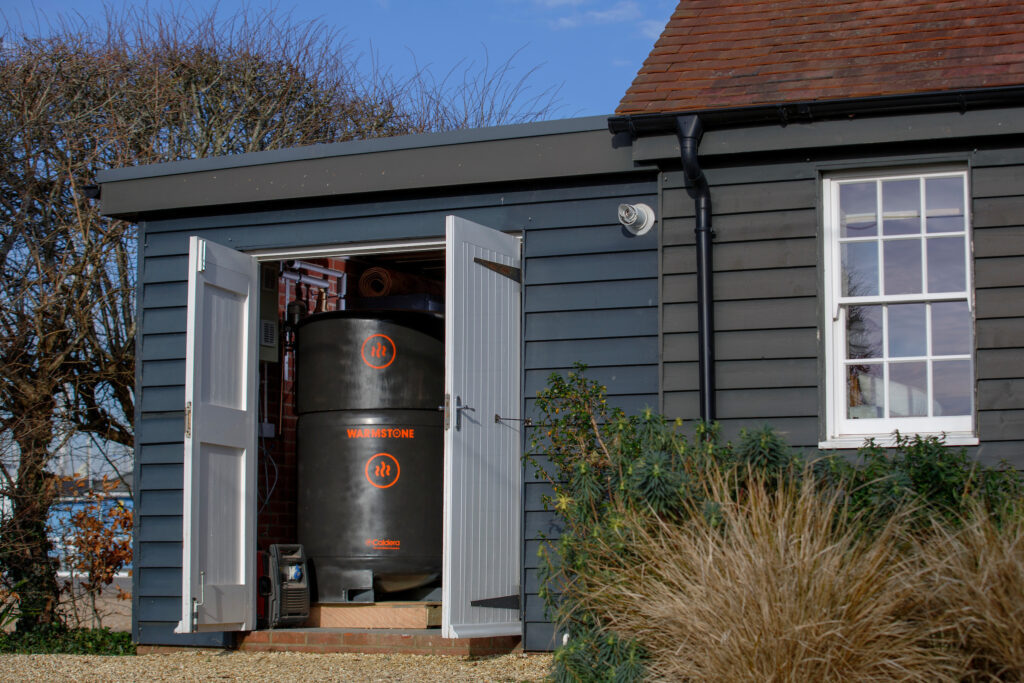British start-up Caldera is launching a new large-scale domestic heat battery, capable of providing low carbon heat by utilising excess renewable energy on the grid.
The battery is based around its patented technology Warmstone, which can be heated overnight using cheap, green, off-peak electricity. It then discharges heat throughout the day to power heating and hot water.
As well as offering an alternative path to decarbonisation, especially for off-gas grid homes, the flexible technology could be used for demand side response, in a similar fashion to electric vehicles and domestic battery storage systems.
The need to decarbonise the UK’s heating network is becoming increasingly pressing, with domestic heating accounting for around 15% of all emissions.
“As an independent, innovation agency set up to tackle the hardest problems on the way to net zero – there are none harder than how we decarbonise heating our buildings,” said Guy Newey, strategy and performance director at Energy Systems Catapult.
“Innovations such as heat batteries will be critical in helping shift more than 25 million homes to reach zero carbon by 2050, particularly in homes that might not be suitable for technologies like heat pumps. Caldera has created a potentially game-changing technology with Warmstone, and we are working hard to help them to bring it to market.”
Caldera was one of seven net zero innovators chosen by the Energy Systems Catapult in 2020 to be part of the their Smart Zero Carbon Building Solutions initiative.
Already a Warmstone unit, which is made up of a dense, novel compound comprising recycled and natural materials, has been installed in one pilot home and the company is now planning to ramp up commercial production over the next year.
The system weighs 1.7 tonnes and measures 1.7 metres tall by 1 metre diameter, and is primarily intended to replace oil or lpg boilers the company said.
“Each unit is heated by low carbon, low-cost off-peak electricity and is able to store up to 100kWh as heat – more than enough to provide heat and hot water to the average four-bedroom home,” said Caldera founder and CEO James Macnaghten.
When needed, the system acts like a traditional gas boiler and transfers stored heat energy to water which runs through the home. It can be installed by an accredited plumber and electrician in a day.
Macnaghten added that changes in tariff structures are making technologies like Warmstone feasible, as electricity is still expensive in comparison to gas in the UK.
“However, in recent years we have seen the advent of innovative new energy companies – such as Octopus – which offer flexible time of day tariffs. This means that a Warmstone heat battery, connected to a smart meter, enables householders to buy cheap electricity when it’s plentiful – at rates as low as 5p kWh – to store for use when required,” he explained.
“At a stroke, this enables householders to move away from oil and gas and embrace a cost-effective, zero carbon alternative.”
Should the technology be rolled out widely, thousands of domestic heat batteries could create gigawatts of intelligent energy storage. One million heat batteries for example could provide 20GW of flexible demand for five hours, as such this could be dispatched to help absorb excess generation and keep the grid balanced.






